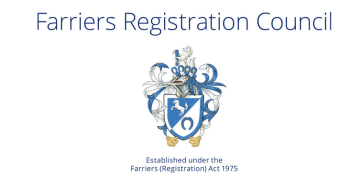Ensuring equal access for all teachers to high-quality Continuing Professional Development and Learning (CPDL) has long been a policy priority given evidence that this can lead to improvements in teaching quality and, thereby, children’s outcomes.
In high-performing school systems globally, arrangements for CPDL are coherent and well-coordinated. In contrast, England’s school system is experiencing significant changes – evolving from place-based oversight by 152 Local Authorities (LAs), to non-place-based oversight by around 1200 Multi-Academy Trusts (MATs), although large numbers of schools remain outside this framework.
In terms of CPDL, the shift has been from a patchwork of school-led provision, including by 750 teaching schools, to a nationally defined offer (i.e. the Early Career Framework and National Professional Qualifications) provided by 87 Teaching School Hubs (TSHs) and augmented by a range of other curriculum hubs, research schools and commercial providers.
In this context, new research undertaken by a team at the University of Nottingham and funded by Wellcome has explored ‘local learning landscapes’ for teacher professional development in England, asking whether and how these can be judged coherent, high-quality, and equitable for primary schools. The research focused on formal and informal professional learning in mathematics, using this as a lens onto wider CPDL practices.
We interviewed local system leaders as well as headteachers, maths leads and teachers in a representative sample of schools in three localities:
- City is significantly deprived, though with some more gentrified areas, and has an ethnically diverse population.
- Town is a former industrial centre with a largely white British population. It is an area of significant deprivation but includes some less deprived areas.
- Shire covers a large geographic area encompassing towns, villages, hamlets and countryside. It includes some deprived post-industrial small towns as well as more affluent areas.
We found that the ‘locality’ in which interviewees worked was important to their professional identities and practices. Many saw themselves working within multiple ‘locales’ simultaneously, for example their school community, their MAT, and their town.
There was a widespread view that geographically ‘local’ arrangements – including school clusters and partnerships – are becoming fragmented as LAs become less significant and as schools join different MATs.
Geographically ‘local’ arrangements are becoming fragmented
The research revealed numerous examples of how the government’s investment in hubs is helping to ensure that teachers and schools access high-quality CPDL. For example, maths hubs were providing CPDL in all three localities, although levels of engagement varied.
A clear finding from the research was that the CPDL offer in all three localities was experienced as fragmented – or incoherent – by school leaders and teachers.
However, the level and nature of this incoherence differed widely, with two factors appearing particularly significant in shaping local perceptions: the geographic proximity of hub providers, and local MAT dynamics.
These MAT dynamics had several aspects:
- the geographic locus of the MATs (i.e. local/non-local),
- school performance and levels of concern around MAT take-over,
- MAT ethos (i.e. more or less standardised), and
- the extent to which MATs collaborate with each other and with the LA.
Overall, it seems that as MATs become more internally coherent in their approach to teaching and CPDL, coherence between MATs across local areas becomes more challenging.
The research highlighted the importance of maths leads and headteachers within schools being outward-facing and well-networked so they could access and share relevant external knowledge and expertise. However, the extent to which this happened differed widely.
We also identified a small group of local CPDL system leaders – we call them ‘landscape gardeners’ – who were helping to strengthen coherence in some localities. These leaders drew on their professional credibility to shape a distinct ‘local’ identity, foster networks and mobilise knowledge. Concerningly, in one locality the loss of one such leader was seen by many as a key factor in the further fragmentation of the local CPDL landscape.
The research leads to several key questions, including who, if anyone, could or should have responsibility for the coherence of CPDL across a locality.













Your thoughts